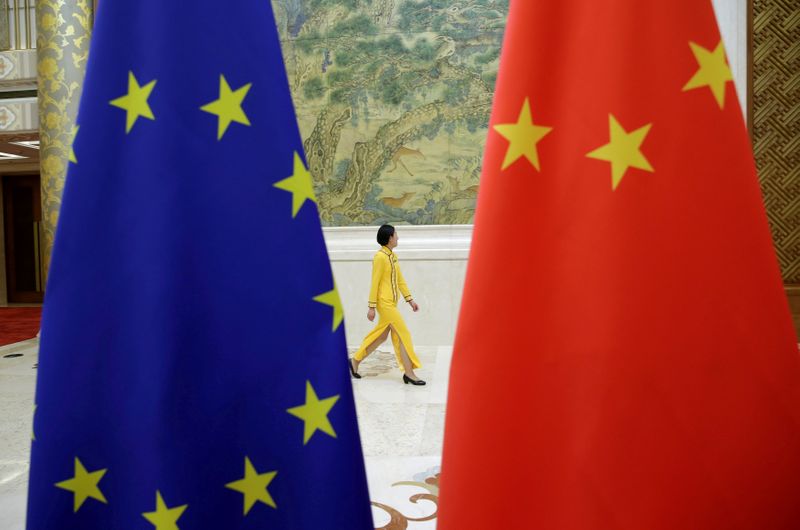BRUSSELS (Reuters) – The European Union has opened two investigations into Chinese exporters to assess whether steel screws are being sold in the bloc at excessively low prices and whether optical fibre cables are benefiting from unfair subsidies.
The EU increasingly sees China as a systemic rival and has 23 investigations underway into various products exported from the country, which makes up about half of the EU’s total number of investigations into trade dumping or subsidies.
One of the new investigations is into alleged dumping of iron and steel screws, bolts and washers after a complaint from the European Industrial Fasteners Institute, the EU official journal said on Monday.
The Institute alleges that Chinese exporters have increased shipments, increased market share and harmed EU producers through their low prices.
The European Commission aims to complete its investigation within 13 months, with the possibility of imposing provisional measures after seven months.
The second new EU investigation will look into whether Chinese producers of optical fibre cables benefited from unfair subsidies following a complaint by EU industry group Europacable.
The Commission has already launched a parallel anti-dumping investigation.
Europacable alleges the subsidies consisted of direct payments, government revenue not collected, state provision of goods at artificially low prices and loans and credit lines from state-owned banks at preferential terms.
Exports of the cables to the European Union have increased as a result, Europacable said, with tariffs imposed in a number of other countries, including the United States, Turkey, India and Mexico making the situation worse.
The European Commission should complete this investigation in 12 months, with possible provisional measures within nine months.
(Reporting by Philip Blenkinsop. Editing by Jane Merriman)



















